MENERGERS Study Trip: Bulgarian Representatives Visiting Germany
In the last week of June 2023, EUKI project MENERGERS brought a group of 9 representatives from the 3 pilot municipalities in Bulgaria to visit Germany for an exciting study tour devoted to the design and functioning of municipal energy managers’ services. The goal of the 3 days program was to share experiences between the Bulgarian participants and the German stakeholders visited which will then support the development of the Bulgarian institutional model of the municipal energy managers’ services in Bulgarian municipal administrations.
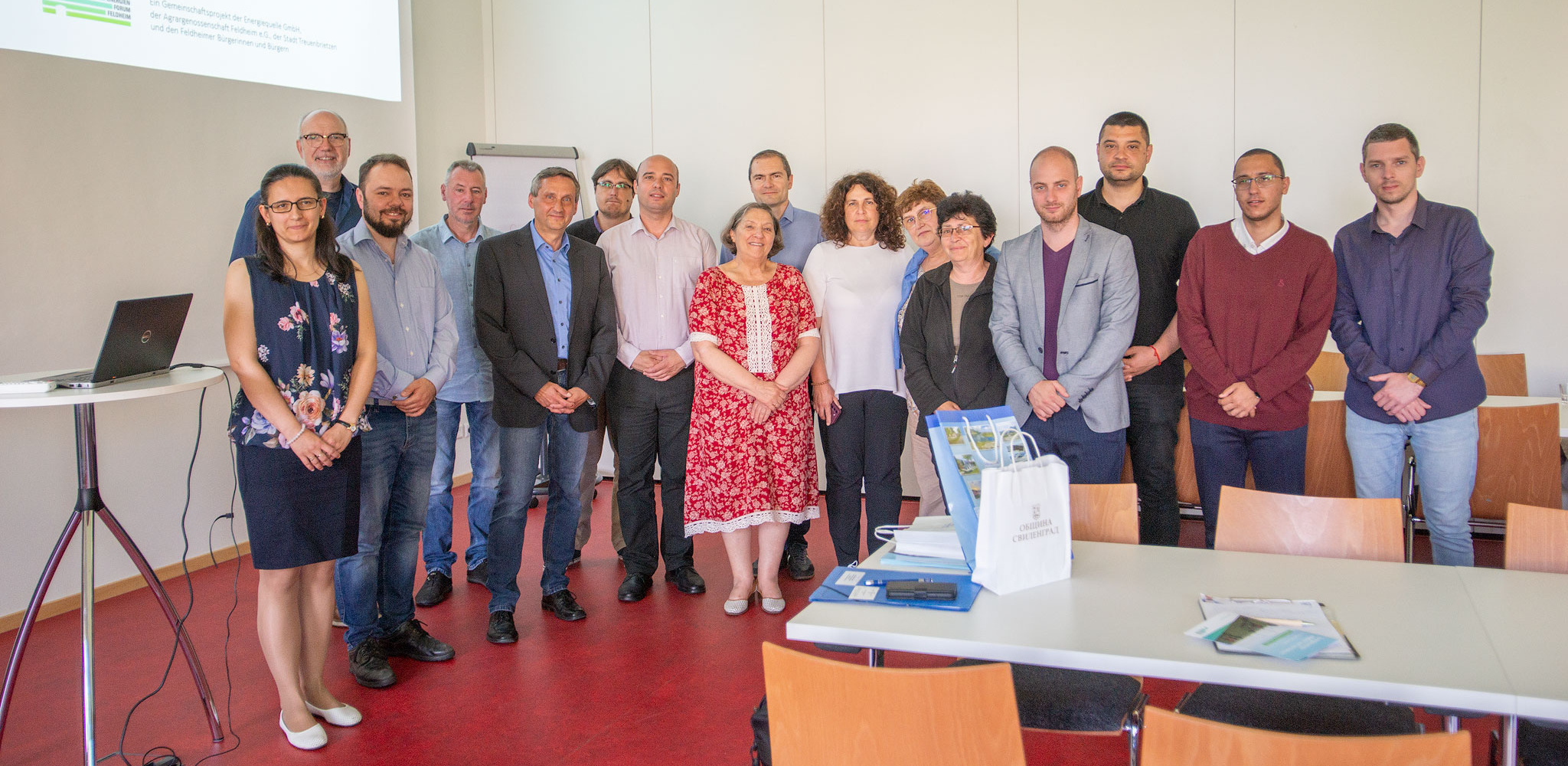
The Bulgarian municipalities were represented by specialised experts from the administrations of Svilengrad (also the Mayor of Svilengrad), Russe and Sapareva Banya. Also, the representatives of the Bulgarian project partners NTEF (National Trust Ecofund) and SOFENA Energy Agency joined. The study visit was organised and hosted by the Germann project partner UfU (Independent institute for environmental issues in Berlin). The study visit achieved its objectives by contributing significantly to the establishment of the experts’ team of the project.
“The Study Visit was a great success, very useful for our delegation. It was also a good chance to meet people from other Energy Agencies, sharing experiences and strategical approaches on Energy Management at local, regional and national level.” – Kamelia Georgieva, International and Pilot Programs Manager at NTEF
On the first day, in Magdeburg at the State Energy Agency Saxony-Anhalt (LENA), they learned about how to identified the needs of energy management in the municipalities, how to establishe the protocols for making decisions based on new knowledge and information analysis. LENA is an energy management agency established in 2012 by the government of Saxony-Anhalt with 100% funding from the federal state, it employs 15 people, has an annual budget of 2.2 million euros and it serves 130,000 businesses in the state and 230 municipalities. It covers a population of 21 million people and they lay a special focus on communication and stakeholder work activities.
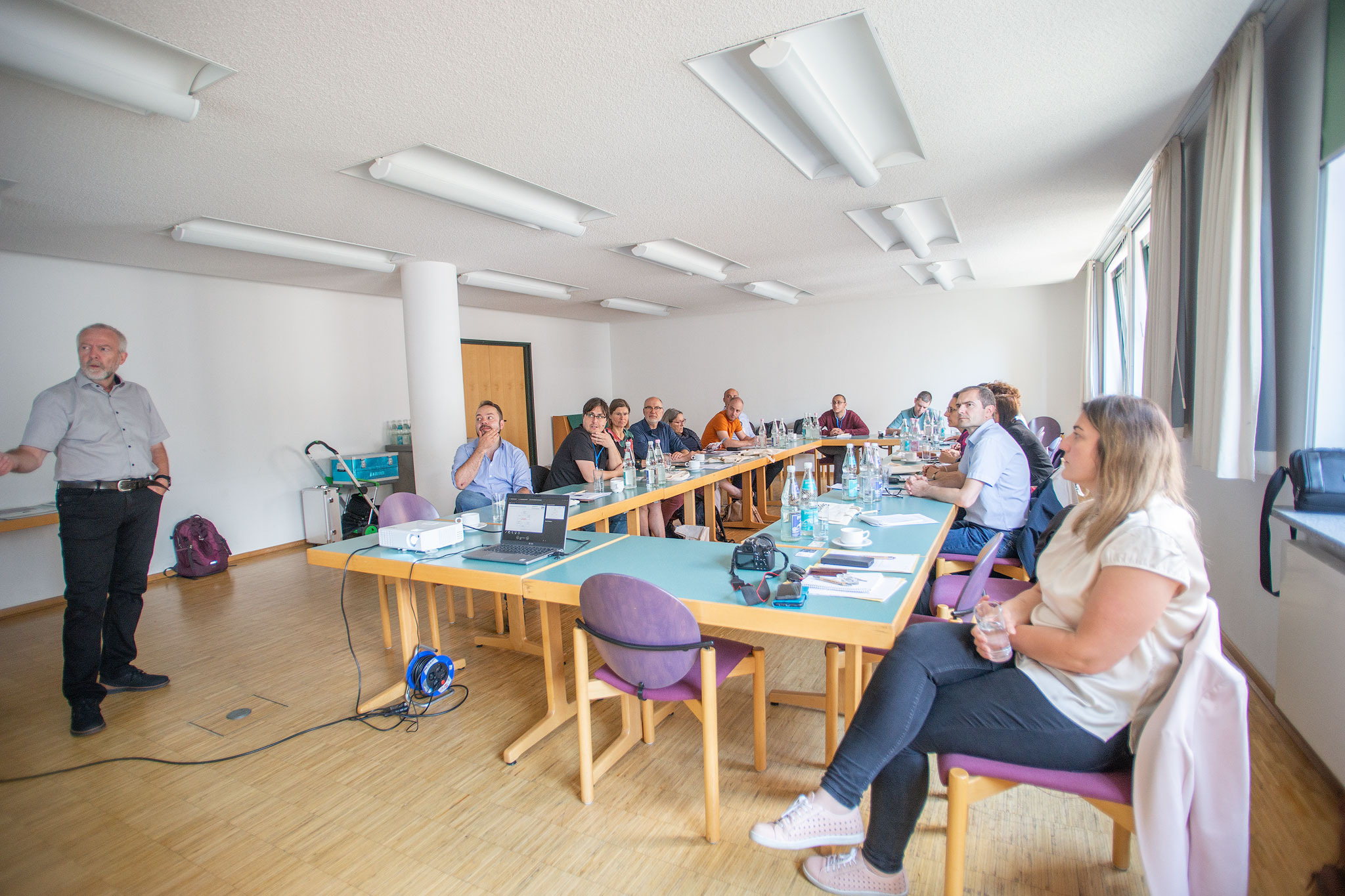
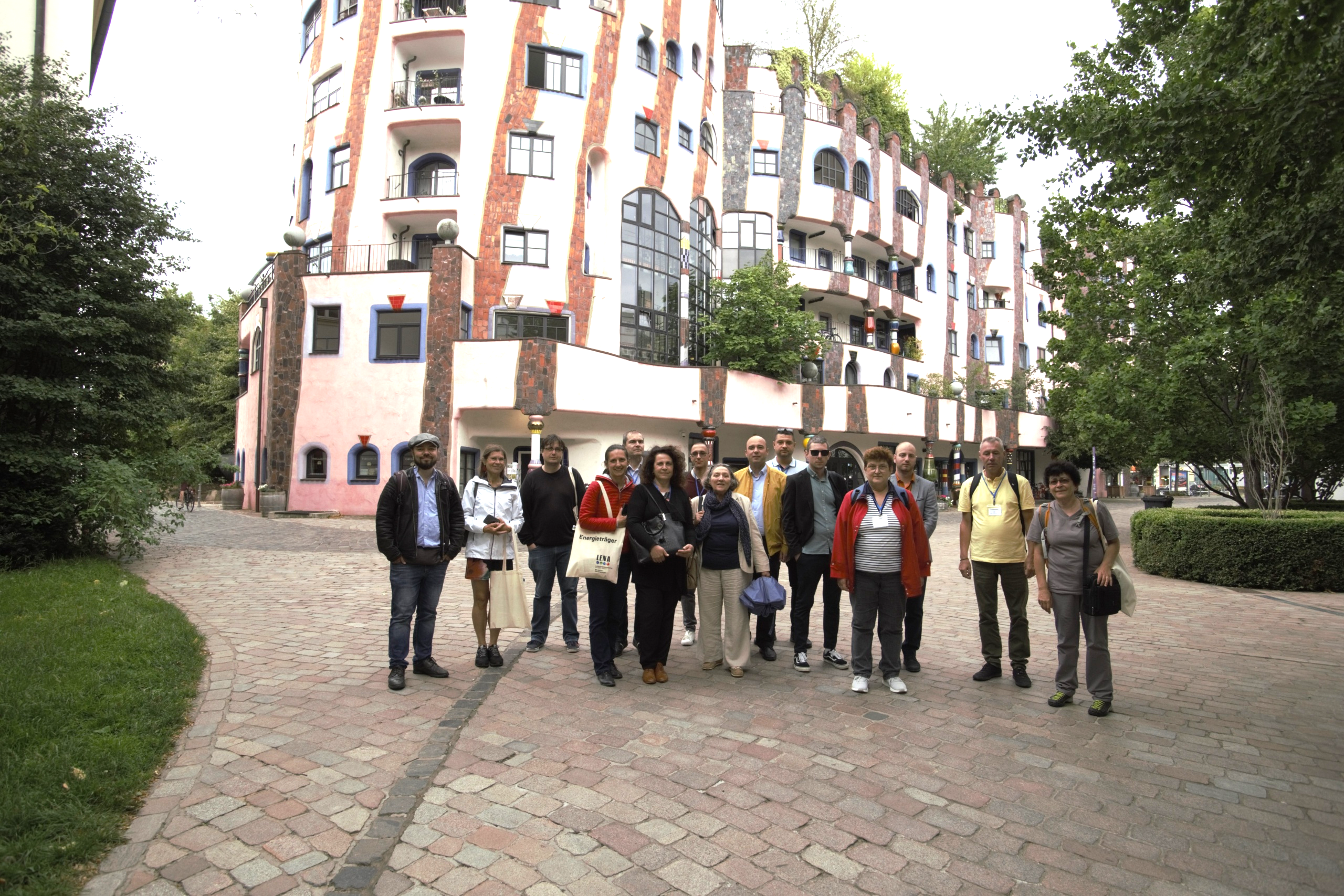
Next, they met with UfU and found out more about the development of passive building construction standards, done together with the Institute for Passive Buildings. The aspiration is to build buildings where energy consumption is below 15kW/h per square meter. Experience was shared in communicating with investors who propose to raise standards and achieve lower energy consumption. The issue of how electricity consumption for lighting and heating can be accounted for separately was discussed. Another discussion was held among the participants of the study trip on the upcoming steps to develop a model for the energy manager services in the Bulgarian municipalities.
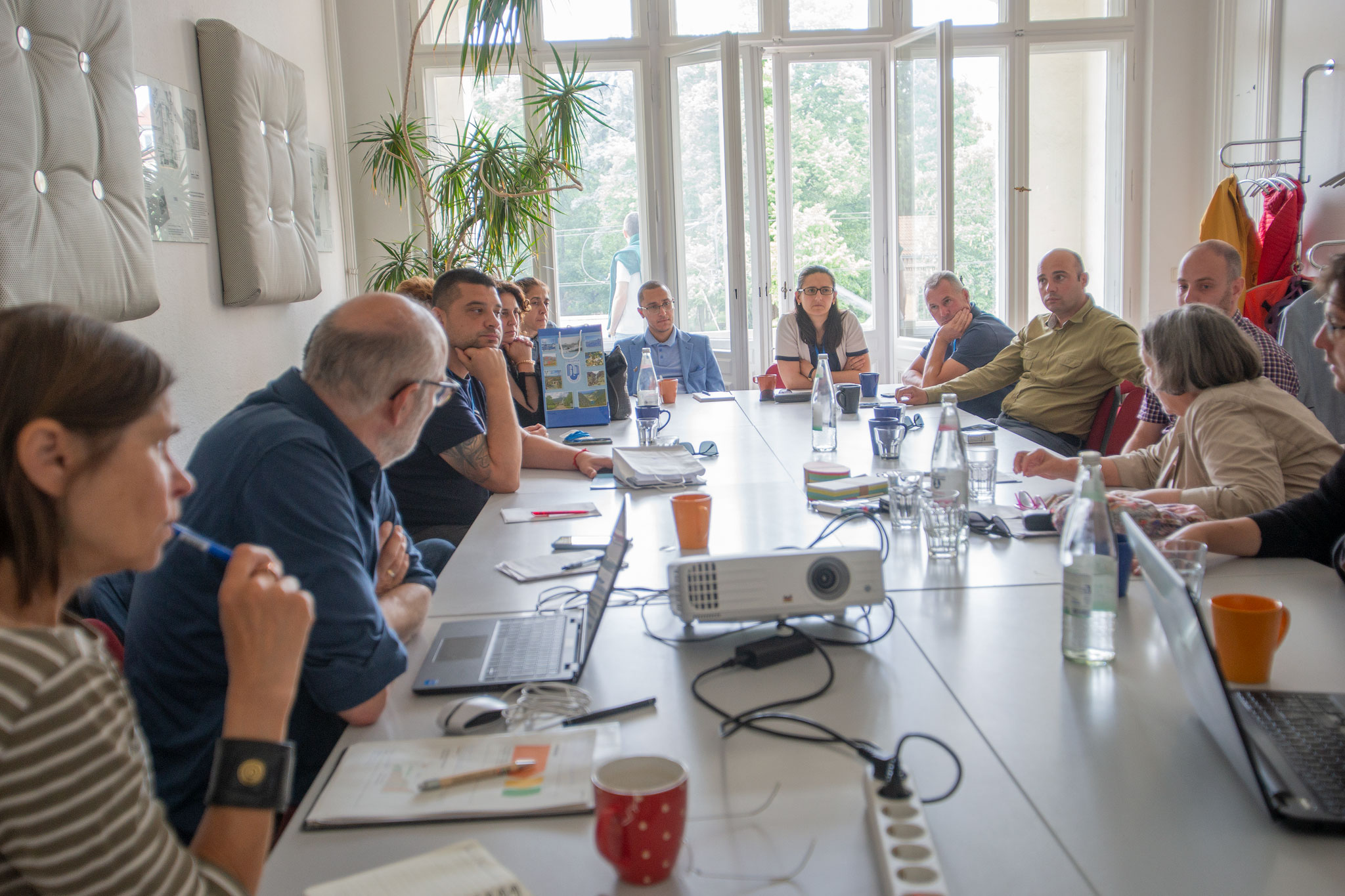
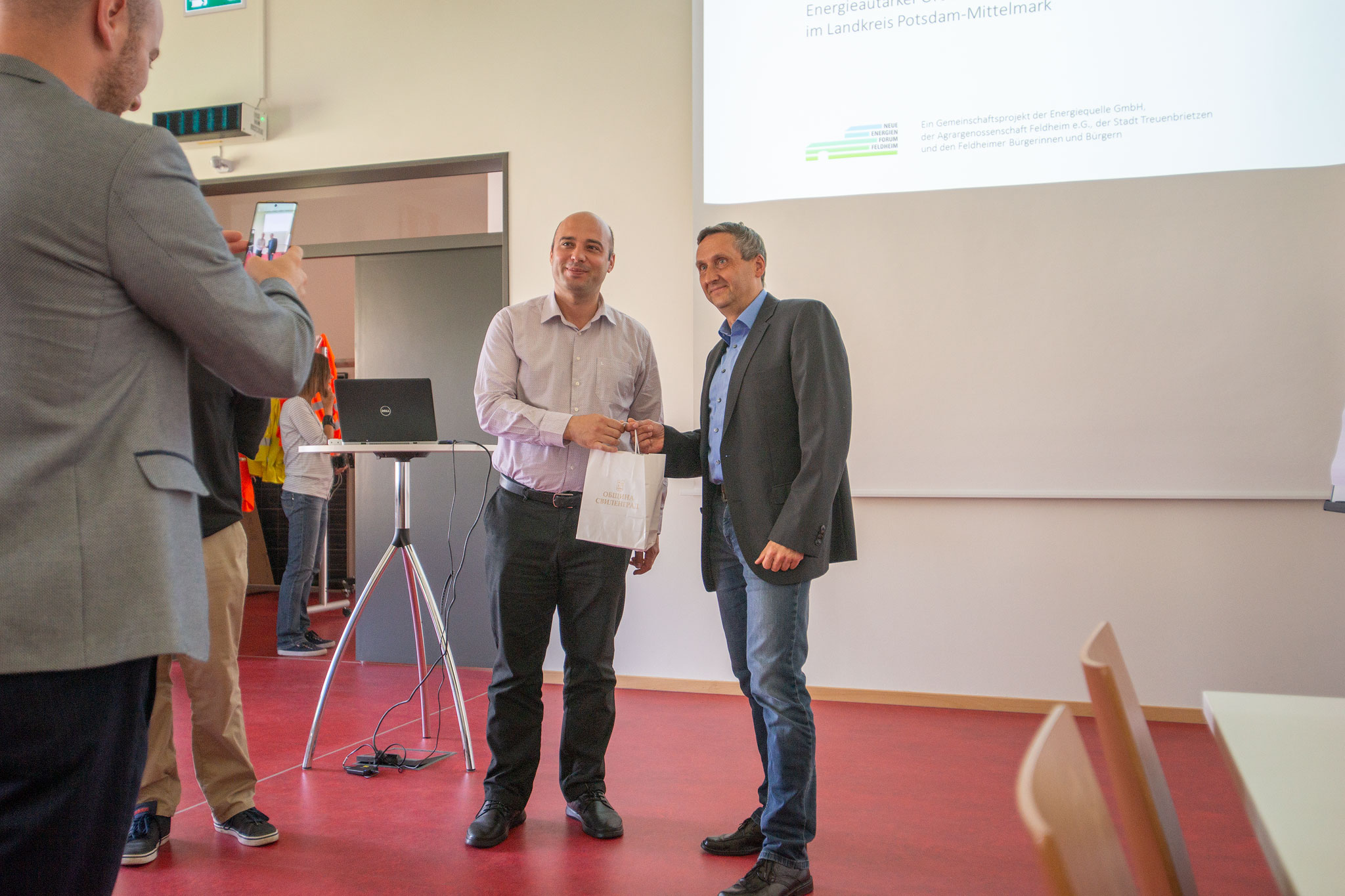
A very exciting experience was presented to the participants when they visited the Forum for New Energies Feldheim. Feldheim, a small settlement nearby Berlin, is now an energy independent village, but such a process takes time. They started in 1995 with an analysis of the resources: a hilly area (there is wind), there are forests (for biomass) and there is a lot of sun. It was not started as an ecological project, but to save themselves from poverty. Truth is the two things are related. Now, the energy produced there is enough for 55,000 households, yet Feldheim only inhabits 130 citizens. At the heart of the policy that guides them is the decentralisation of energy production. Most important in the process has been the involvement of local residents and all local stakeholders. The basis of the new processes was keeping the form of cooperation from the GDR, adding complete transparency and trust in the villagers’ association itself.
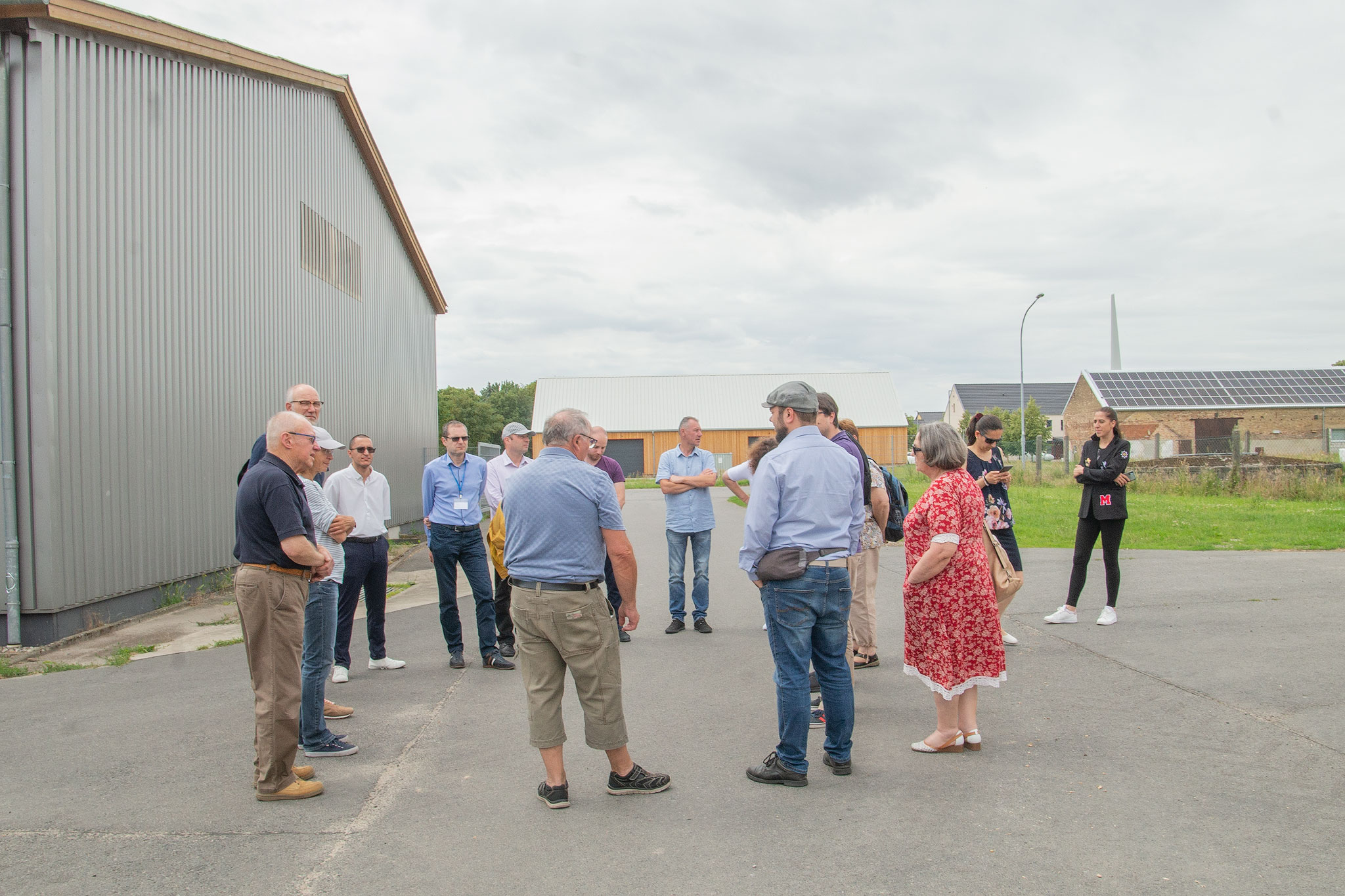
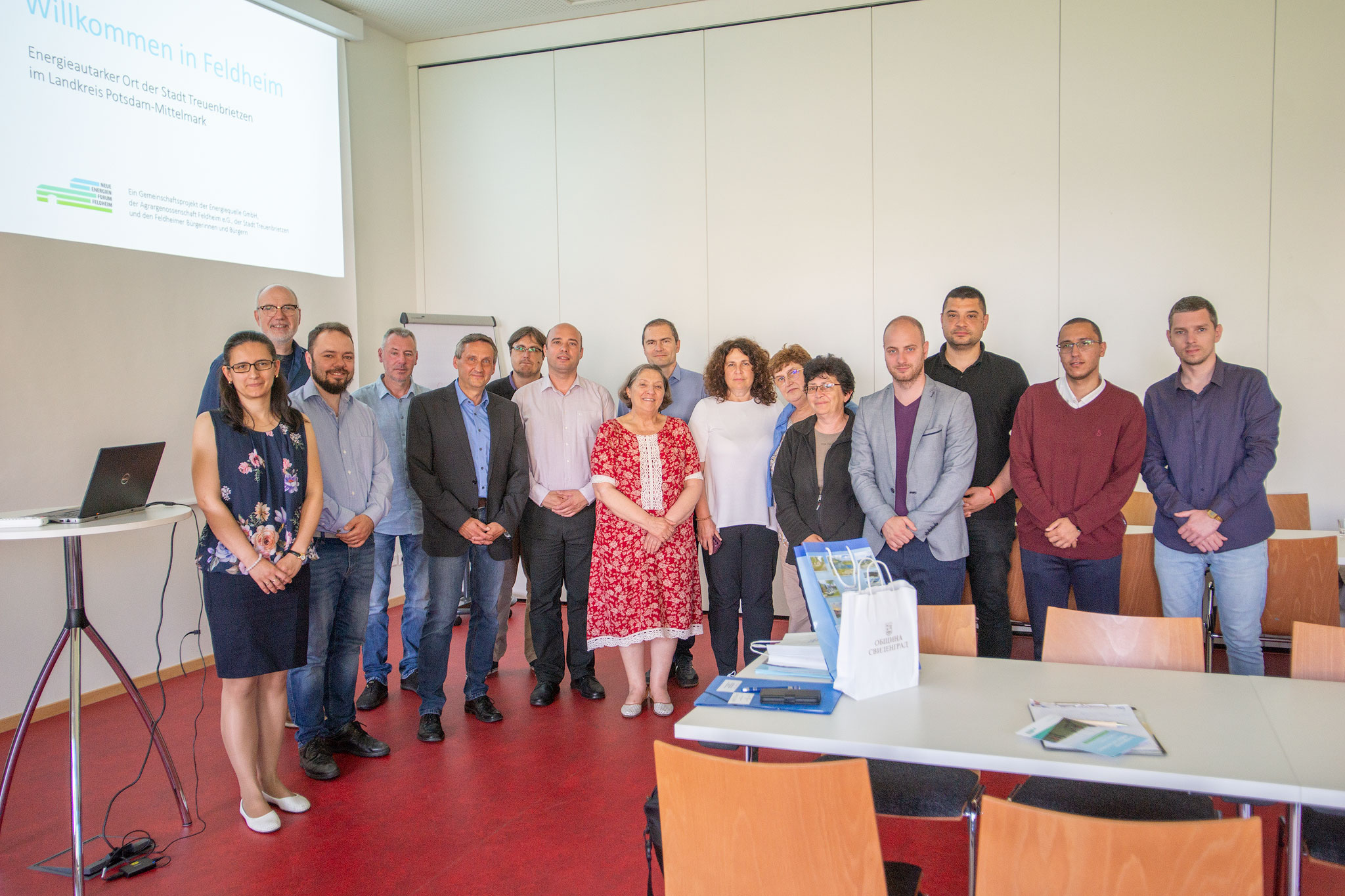
The participants were impressed by the balance between energy management and the participation of people and institutions, and also very pleased to learn about new practical ideas which are applicable back home in Bulgaria.
